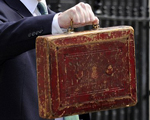Calls by retail landlords to rethink a deferral on business rates are expected to go unanswered in tomorrow’s budget.
The BCSC said it is ‘unlikely’ the government will make any move on its deferral, despite research from EGi showing that retail rents have fallen by over a fifth since the peak in 2008.
Rates are currently based on rental values at the height of the market in April 2008 and haven’t been readjusted to fit with the present economic climate. The government announced in October last year that it would defer a revaluation from 2015 to 2017.
Research by EGi shows that UK average annual retail rents have dropped by 20%, equating to a drop of £2,000 per annum, since the last revaluation in 2008. The North West is the worst hit region in the country with rents down 43%, followed by Yorkshire and Humber down 33%. London proved the most resilient with rents slipping by just under 3%.
Experts have warned of disastrous consequences for retailers and landlords if the deferral is not rolled back. Graham Shone, head of retail at EGi, said: “If tomorrow brings no indication of a U-turn over the decision to postpone the rent revaluation until 2017, rents will have to continue to fall in order to make retailers’ cost-base anything close to viable in the current climate, this in turn will only make the situation worse for stretched landlords.”
In contrast, business rates have shot up, and now form nearly half (47%) of the rent bill, according to figures from Oxford Economics and Haver Analytics. BCSC director of policy and public affairs Edward Cooke said this figure was conservative with many areas suffering far greater rental decreases. “The property market is bearing the uplift in rates either by reducing rents and incentives and in some cases by actually paying the rates themselves. The government needs to get its head around the fact that it is eating into profitability and businesses ability to expand. It’s curtailing benefits from other taxes.”
The BCSC is asking George Osborne to put a 2% cap on business rate increases in tomorrow’s budget.











